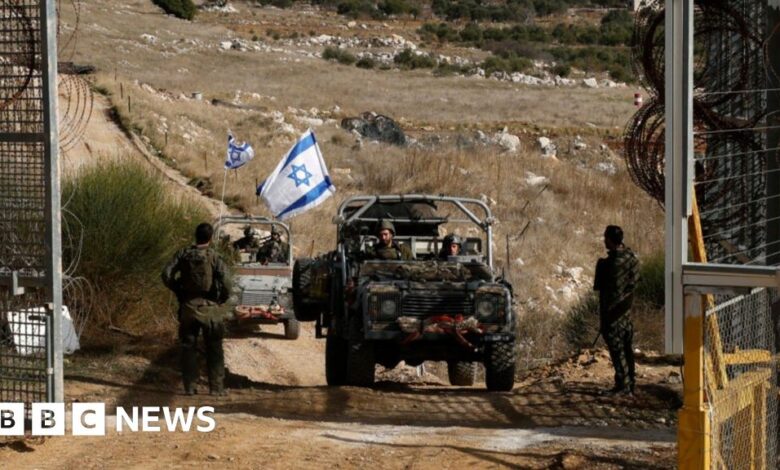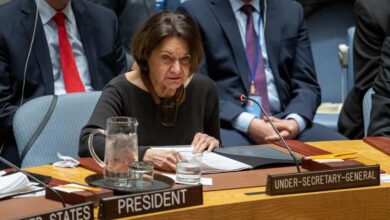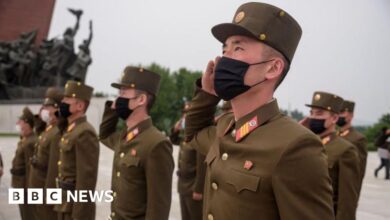Israel expanded settlements in the Golan Heights after the fall of Assad

The Israeli government has approved a plan to encourage settlement expansion in the occupied Golan Heights.
Prime Minister Benjamin Netanyahu said the move was necessary because a “new front” had opened on Israel’s border with Syria after the Assad regime fell to a Muslim-led rebel alliance.
Netanyahu has said he wants to double the population of the Golan Heights, which Israel seized during the 1967 Six-Day War and is considered an illegal occupation under international law.
Israeli forces entered the buffer zone separating the Golan Heights from Syria in the days after Assad’s departure, saying the change of control in Damascus meant the ceasefire agreements had “collapsed”.
Despite the move, Netanyahu said in a statement Sunday night that Israel “is not interested in the conflict with Syria.”
“We will determine Israel’s policy toward Syria based on the realities on the ground,” he said.
There are more than 30 Israeli settlements in the Golan Heights, home to about 20,000 people. They are considered illegal under international law, something Israel disputes.
The settlers live alongside about 20,000 Syrians, most of them Druze Arabs, who did not flee when the area came under Israeli control.
Netanyahu said Israel would “continue to hold firm [the territory]make it grow and solve it”.
The announcement came a day after Syria’s new de facto leader Ahmed al-Sharaa criticized Israel for its repeated attacks on military targets in the country, allegedly targeting facilities. military.
The UK-based Syrian Observatory for Human Rights (SOHR) has recorded more than 450 Israeli airstrikes in Syria since December 8, including 75 since Saturday night.
Al-Sharaa – also known as Abu Mohammed al-Jolani – said the attacks had “crossed the red line” and risked escalating tensions in the region, although he said Syria was not seeking conflict with any neighboring country.
Speaking to Syrian television, which is seen as supporting the opposition in the civil war, al-Sharaa said the country’s “war-weary state, after years of conflict and war, does not allow allowing new confrontations to occur,” Reuters reported.
The Israel Defense Forces (IDF) has not commented on his remarks, but previously said the strikes were necessary to prevent weapons “falling into the hands of extremists”.
President Bashar al-Assad and his family fled to Russia and sought asylum when al-Sharaa’s Islamist group Hayat Tahrir al-Sham (HTS) led other rebel factions in a lightning attack on Damascus.
These groups are continuing to form a transitional government in Syria, of which al-Sharaa is the theoretical head.
On Saturday, US Secretary of State Antony Blinken said Washington contacted HTS directlywhich the US and other Western governments still consider a terrorist organization.
United Nations special envoy for Syria Geir Pedersen said on Sunday he hoped sanctions against the country would be quickly ended to help facilitate economic recovery.
“We hope for a quick end to sanctions so that we can see real solidarity around building Syria,” Mr. Pedersen said as he arrived in Damascus to meet with the Syrian interim government and officials. other position.
Elsewhere, Turkish Defense Minister Yasar Guler said Ankara was ready to provide military support to the new Syrian government.
“It remains to be seen what the new administration will do,” Guler said of HTS, according to state news agency Anadolu and other Turkish media outlets. We think we need to give them a chance.”




